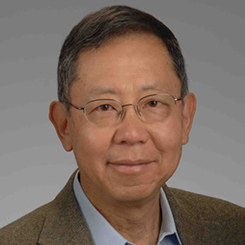
I am delighted to introduce Richard Nakamura, Ph.D., Director of the NIH Center for Scientific Review (CSR). Dr. Nakamura leads CSR’s 450 scientists and administrative staff, overseeing their efforts to manage 80,000 incoming NIH grant applications a year and review the majority of them in CSR peer review groups. CSR holds about 1,500 review meetings a year, involving about 17,000 reviewers from the scientific community.
If you have comments or questions, please send them to Anita Linde, M.P.P. lindea@mail.nih.gov.
Stephen I. Katz, M.D., Ph.D.
Director
National Institute of Arthritis and Musculoskeletal and Skin Diseases
Dear Colleagues:
If you have an NIH grant, you are likely thankful for the researchers who volunteered to review your grant application because they helped NIH see its merit and fund it. At the NIH Center for Scientific Review (CSR), we are thankful for the 17,000 principal investigators (PIs) who did their part last year and served on our peer review groups. Other reviewers served on peer review groups organized by NIAMS and other NIH Institutes and Centers.
The Ongoing Need for Reviewers
We are humbled by the depth of this commitment and the way it helps to invigorate NIH research and accelerate science and health care in the United States. We are also challenged by a need to recruit more researchers for our review groups.
If you have never served on a NIH peer review group or haven’t done it in a while, please consider saying "yes" the next time you are asked. Better yet, be proactive and let us know you’d like to serve.
Consider Top Reasons Reviewers Say They Serve
NIH regularly reminds grantees that they have an obligation to serve, but I like to highlight the benefits, as told to us by reviewers we interviewed:
- "It’s intense and cutting edge . . . and intellectually stimulating to see the wonderful ideas and approaches to major problems that come through."
- "It’s the best way to stay up to date in your field, and to gain insights from other fields that can be applicable to your own work."
- "I got much better at counseling young people in how to think about their applications and what to do, and it’s paying off in their success."
Volunteer
If you are an established investigator with funding--
- Contact a CSR Scientific Review Officer: Send your CV to a CSR Scientific Review Officer you know from having your applications reviewed.
- Let Us Try to Find a Good Review Group for You: Send your CV to csrvolunteer@mail.nih.gov, and we will work to pair you with an appropriate review group.
If you are an emerging researcher with an independent line of research--
- Check Out Our Early Career Review Program: This program can help jumpstart your career by giving you valuable experience participating in review meetings, working with distinguished scientists, and learning how to be a reviewer. Learn more about the benefits and requirements by going to the Early Career Reviewer Web page.
Engage Your University and Society
We also encourage universities and scientific societies to do their parts, by--
- Promoting review service at faculty or society workshops, meetings or training sessions.
- Inserting links to CSR/NIH reviewer recruitment web pages on appropriate pages on their websites.
- Sharing CSR’s Consider Becoming an NIH Reviewer flyer.
(Instructions to print the flyer double sided)
Visit our Become a Reviewer Web Page to start or renew your service. By working together and supporting dynamic peer reviews at NIH, we will maximize the potential and promise of the biomedical research community.
Sincerely,
Richard Nakamura, Ph.D.
Director
Center for Scientific Review
National Institutes of Health
